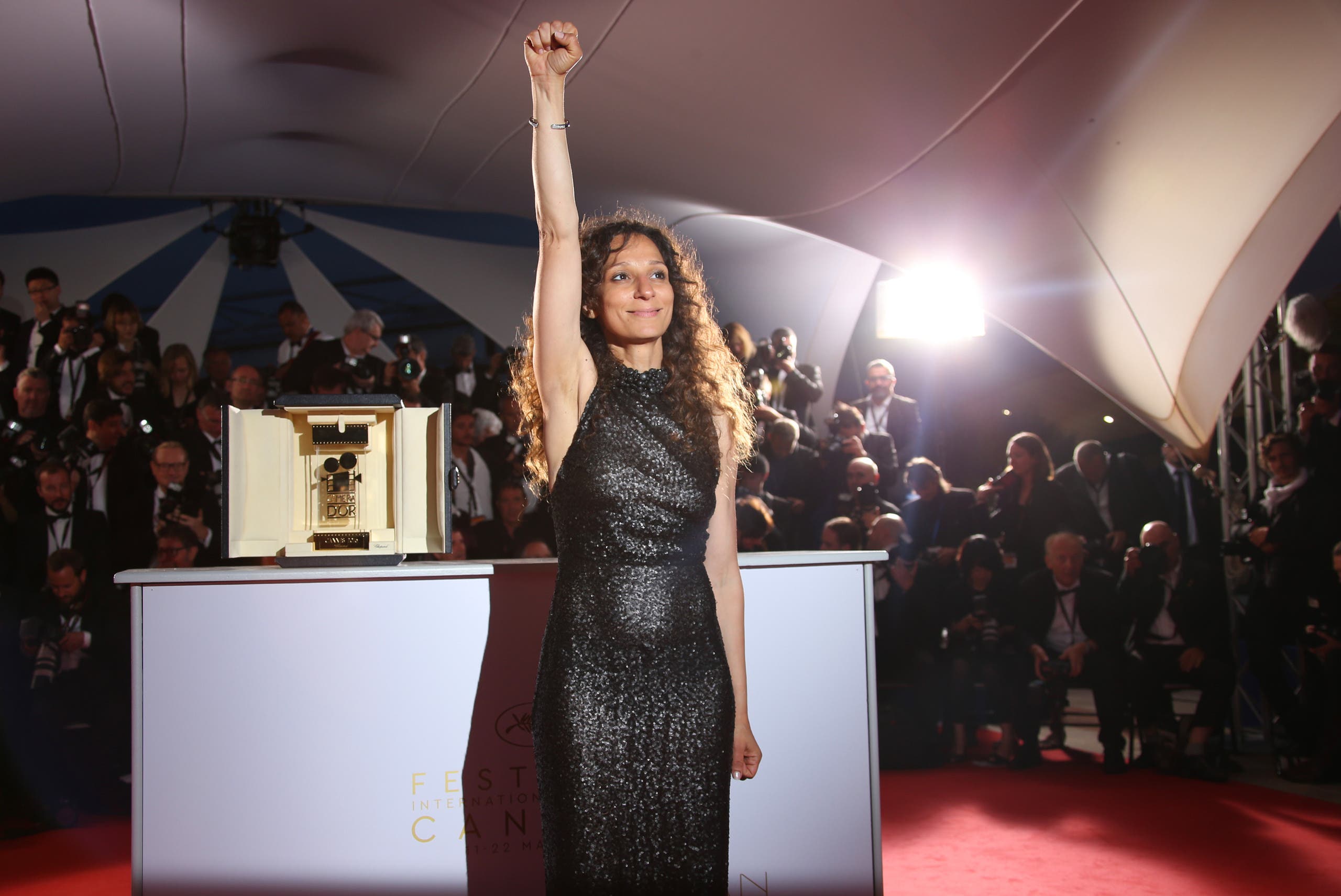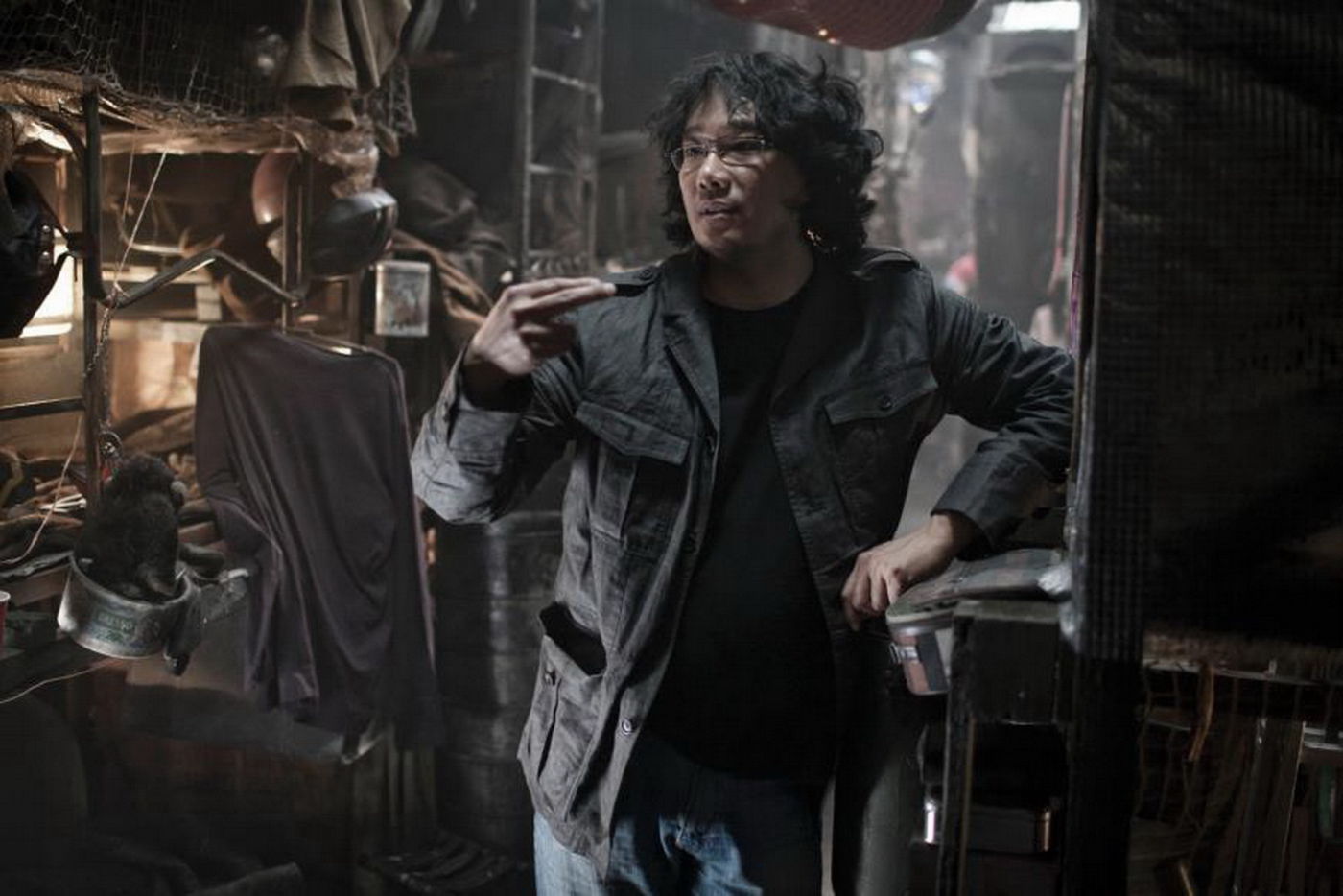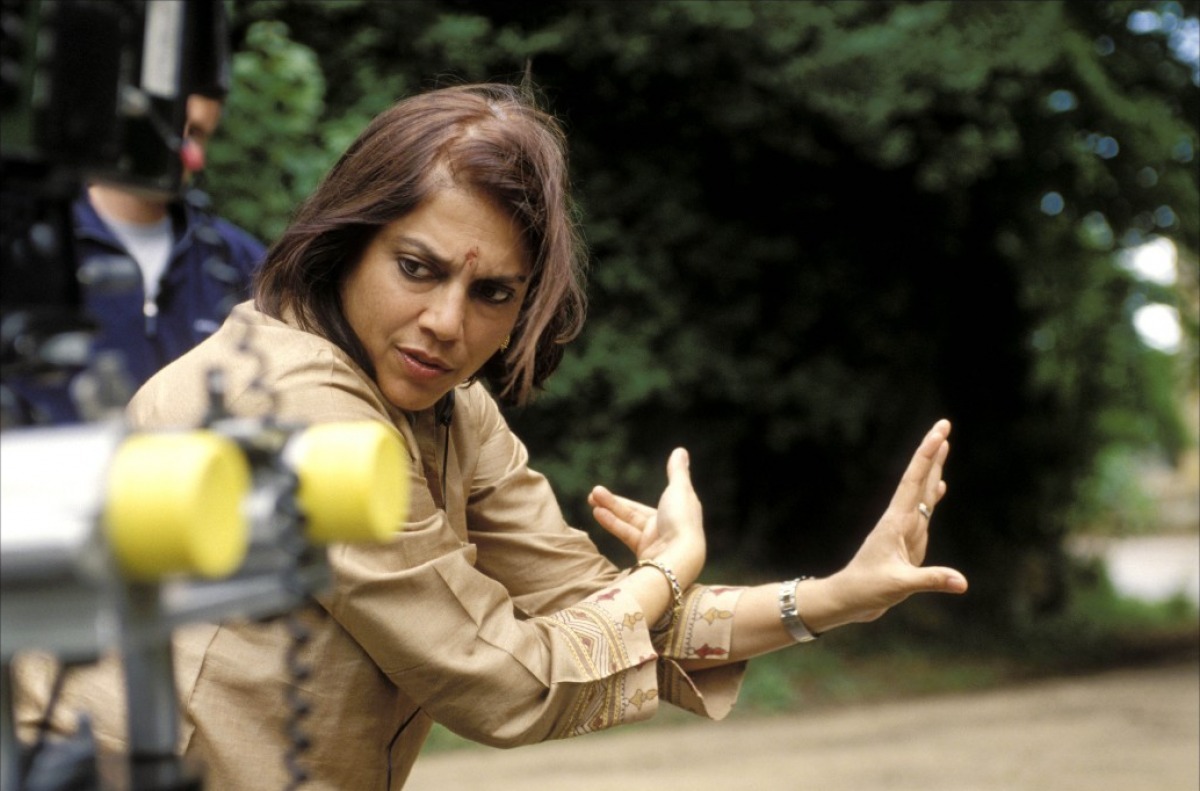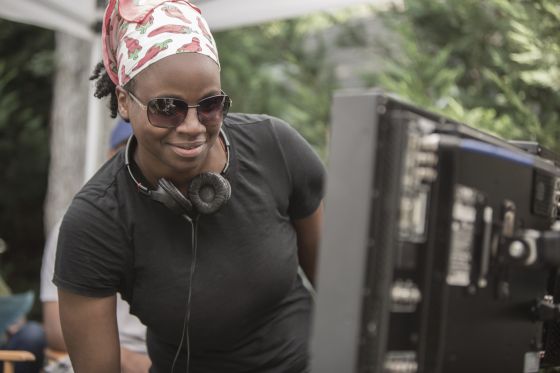
By Orla Smith.
I saw The Book of Henry.
If that sentence fills you with dread, or pity, or a desire to burst out laughing, then we’re probably of the same mind: Colin Trevorrow should not be directing Star Wars: Episode IX. Someone else should. Literally, anyone else.
It’s hard to name a major studio that hasn’t come under fire for hiring a white male director who’s made one moderately successful indie to helm their major blockbuster. Even as we speak, Kathleen Kennedy and her cronies are scouring this year’s Sundance line-up for someone young, cocky, and acclaimed, but not too acclaimed (god forbid they try to exercise a little creative freedom).
I’m being facetious. Star Wars has been a different matter. While other studios appear to be picking their directors based on how little they can get away with paying them, Star Wars seemed to care. JJ Abrams brought sweep and grandeur to The Force Awakens, and Rian Johnson is an Emmy award winner and writer/director of a number of acclaimed features (Brick, Looper). The Last Jedi is in good hands.
With such stellar talent behind the camera of the first two instalments of this new trilogy, they must have someone really special lined up for the grand finale! Let’s see, who is it again?
Oh…
Colin Trevorrow’s first feature Safety Not Guaranteed was a moderate Sundance hit, liked by some, not by me. He then made Jurassic World, which currently holds the honour of being the fourth highest grossing film of all time. But its critical acclaim is a different matter; even those who had fun with the film (there are a couple moments of tension that work, I’ll admit) won’t have much to say about it two years on.
But Lucasfilm evidently decided that the box office strength of Jurassic World could be attributed to its director, rather than simply the hunger for nostalgia that pervades every corner of modern pop culture.
Hope is still on the horizon, though. Much of the film community was upset when it was announced that Phil Lord and Chris Miller had been pulled off of the upcoming young Han Solo movie four months into production, but their firing offered a light at the end of the tunnel. I had wondered whether it was too late for Colin Trevorrow to be fired, given that Episodes IX is set to start production at the end of the year. But if Lucasfilm is willing to switch directors (Ron Howard is now helming the project) four months into shooting, clearly it’s never too late.
With the recent release of Trevorrow’s critically maligned The Book of Henry – which I can confirm is silly beyond belief – hopes are high. The right thing can still be done, and every ounce of momentum is pushing towards it.
So, Kathleen Kennedy (if you’re reading this, and I’m sure you are), here are 14 proposals. I’m confident I could name at least a hundred filmmakers who could make a better Star Wars movie than Colin Trevorrow, but here are some realistic options, some great artists who could thrive within the boundaries that this universe has set up. Of course, I’d love to see an Andrea Arnold Star Wars as much as the next person, but it’s never going to happen. These ones just might.
Houda Benyamina

Houda Benyamina winning the Camera d’Or at the 69th Cannes Film Festival
Houda Benyamina has built her career on proving people wrong. Divines, her 2016 Cannes prize winning first feature, was ripped straight from the heart. Casting her extraordinary younger sister Oulaya Amamra as a struggling teen mixed up in a whirlwind of poverty, gang culture and sexual awakening in the French suburbs, she set the film in the world in which she grew up. She rose from that place to prove to the bourgeois French film industry that her voice mattered to.
The least experienced filmmaker on this list, she’s only made a single feature, but that hasn’t stopped Disney before. Divines (which was released by Netflix) is proof enough that Benyamina can take any scenario and infuse it with boundless energy and vibrancy, as well as wrenching tension evident within the final act. She’s cinematically inventive, ambitious, and the project she’s currently courting For Assia, a romantic epic centering on an Algerian female revolutionary – is proof enough that she’s looking to broaden her scope and focus on the strength of women amidst war – in other words, Rey would be a piece of cake.
Susanne Bier

Susanne Bier on set
In the 90s, a group of filmmakers joined forces with Lars von Trier and Thomas Vinterberg to make films under the guidelines of the Dogme 95 Manifesto. Susanne Bier was one of them, and while von Trier has gone on to claim the status of a genius, being notoriously difficult with his collaborators but nonetheless respected for his experimental craft, it’s difficult to imagine a woman like Bier being afforded that luxury.
She’s been working since the early 90s but has never graduated from the same level of mid-budget filmmaking. There’s a couple misses in there – most notably Things We Lost in the Fire and Serena – but mostly she’s spent the last two decades being quietly impressive and going unnoticed in comparison to her wild counterparts. In a Better World won the Oscar for Best Foreign Language Film, Brothers (which was later remade in English) and After the Wedding both earned critical plaudits, Love is All You Need is a perfect example of a filmmaker drawing the absolute most from a familiar story, and just last year The Night Manager (for which she was show runner and won an Emmy for directing all six episodes) was loved by many and proved her worth in genre filmmaking. Perhaps Bond might be a good fit, but I’m confident that Bier could make a slick and smart Star Wars film. She’s done her time, and now she deserves more.
Kathryn Bigelow

Kathryn Bigelow on set
Imagine if Kathryn Bigelow had directed Rogue One? Gareth Edward’s style of filmmaking has a quality reminiscent to hers – he attempts a gritty, handheld look at war in a similar aesthetic vein to The Hurt Locker, but not only is he not up to her level of technical skill, he also hasn’t a clue what to do with character or actors. Those might not often be cited as Bigelow’s strengths, but it’s worth noting that she’s directed two actors – Jeremy Renner and Jessica Chastain – to Oscar nominations.
Arguably the leading action director, her films are all about war, perfect for a franchise with the word in its title. She’s been working in the industry since the 80s and has helmed some of the best genre pictures that have come out since: Near Dark shows her interest in sci-fi, Point Break is evidence of an ability to have fun, and Zero Dark Thirty and The Hurt Locker (which made her the first ever female winner of Best Picture and Director) are masterclasses in tension, exploring the darkness and shaded morality of the situations they depict. She’s not free of controversy, both in terms of the torture sequences in Zero Dark Thirty and her upcoming Detroit (in theatres this August) being a story about black lives told by a white writer and director, with a lack of black women visible in the marketing. But whatever moral gripes you may have with Bigelow, her craft has never been in question.
Bong Joon-ho

‘It’s a re-hash of A New Hope‘ is the phrase that grated on the ears of every Force Awakens fan for months after its release. On a factual level, that may be true, but as I was watching the film for the first time, without dissenting voices throwing me off, the thought never crossed my mind. Why? Because the characters were so vibrant, compelling and fresh that I was happy to watch them do anything. A year and a half on from that ensemble film, I still remember each of them vividly: Rey, Finn, Poe, BB-8, Kylo Ren, Maz Kanata… each one had moments that brought them to life.
Okja (released on Netflix just yesterday) is many, many things, but predominately it is an ensemble film in which almost every single player has something that makes them memorable. It’s wild, but as proven by almost everything he’s ever done, South Korean auteur Bong Joon-ho is able to fuse mad genius with fluid commerciality unlike anyone else. His Star Wars film would be a blockbuster for the ages, fit to bursting with fun, emotion and kinetic action. He’s likely more wary than anyone of re-entering the world of American studio filmmaking after the problems he faced making Snowpiercer, but if Disney allowed themselves to trust his instincts they’d be a whole lot better for it.
Niki Caro

Niki Caro on set
There are a few directors on this list with previous ties to Disney properties, but Niki Caro fits particularly snugly into that category. Recently she helmed Disney sports drama McFarland, USA, and at the end of 2018 she’s set to release a live-action remake of Mulan for the studio.
Caro has directed 3 actresses to Oscar nominations between Whale Rider and North Country, and in The Zookeeper’s Wife her lead Jessica Chastain gave a wonderful performance in a film that is commercial, large in scope and sweepingly emotional. It’s a real winner and I wonder why its studio didn’t have the confidence in it that they should have, when many other true historical dramas (often led and helmed by men) that are equal or lesser in quality have been pushed for awards consideration. Luckily, Caro’s talent in fluidly and efficiently pulling off large projects isn’t going unnoticed. Her skills would fit perfectly into the Star Wars universe.
Ava DuVernay
Ava DuVernay on set
When I saw The Force Awakens, I fell in love with one moment. In their climactic lightsaber battle, Kylo Ren and Rey are in deadlock. He tries to convince her to join the dark side, and for a moment she is lost. Her eyes waver, face blanketed in conflicting red and blue lights. Then, she closes her eyes, and opens them again, and they are set in a stare of icy resolve. When it was revealed that the inclusion of this moment was Ava DuVernay’s idea, conceived when JJ Abrams had shown the scene to her to try and work out if something was missing, it’s telling how little we were surprised. Of course it was her.
The Star Wars franchise has been praised for their newfound focus on women, but criticised for the fact that all those most visible roles have been given to white women. DuVernay, an outspoken advocate and just generally brilliant artist, would no doubt be insistent on changing that as much as is within her power. Having collaborated on The Force Awakens, and now working on their blockbuster revamping of A Wrinkle in Time (slated for March of 2018), Disney has certainly got their eyes on her. She’s a former publicist, and therefore the kind of artist who’s able to deftly balance her individual vision and the expectations of a studio. With Middle of Nowhere, Best Picture nominee Selma, all women-helmed TV series Queen Sugar and highly influential Netflix documentary 13th under her belt, she has more than enough clout to become one of our leading blockbuster filmmakers.
Patty Jenkins
Patty Jenkins (centre) on the set of Wonder Woman
Obviously. Writing about many of the filmmakers on this list, I’m trying to put together a convincing argument as to why they would make a good Star Wars film. I don’t need to do that with Patty Jenkins – Wonder Woman is argument enough. It took her 13 years to make her second feature, after the triumph that is her deeply felt, complex debut Monster (the film which won Charlize Theron her Academy Award), but it was worth the wait.
She’s being courted for several projects at the moment, and it’s no wonder she’s taking her time to decide. Riding off a high like this, everybody wants you, and she’s recently expressed her desire to direct a sequel to Wonder Woman, as well as a horror film. Nothing is confirmed yet, but we do know this: Patty Jenkins can do action, she can do adventure, she can do epic, she can do compelling women discovering new worlds and she can do compelling women discovering themselves. It’s a no brainer.
Karyn Kusama

There are some filmmakers who deserve a stint in ‘director’s jail’ (*cough* Colin Trevorrow *cough*), and some who spend years there but never deserved to be condemned in the first place. After her debut Girlfight tied for the Sundance Grand Jury Prize (with Kenneth Lonergan’s You Can Count On Me), Karyn Kusama went straight on to Aeon Flux. And it did not end well.
Legend has it that Kusama was being supported by the studio in her attempts to take the film in a more experimental direction – at least, as experimental as a studio picture can get. But during her time working on the project, the studio went through a change in producers and she ended up being pulled out of the editors chair and having her film desperately hacked up into the critically maligned creature that it is today. Kusama was horrified at what they did to it, but still saw the project through in an effort to salvage what she could. In the end, it was her that got the blame, and it wasn’t until last year’s masterfully sleek one location thriller The Invitation that she fell back into good favour. At least she’s with us now, and any studio would do good to hand someone like this a large scale production: a classical stylist with a complete grasp of her craft.
Ang Lee

Ang Lee on set
Ang Lee can do anything. Yes, you can probably point to a couple of times when he fell flat on his face, but that’s nothing compared to the number of times when he’s soared. He can pull off unparalleled heights of sweeping emotion in Brokeback Mountain, and some of the most graceful action ever put to screen in Crouching Tiger, Hidden Dragon. His work with CGI in Life of Pi is legendary. He has directed five actors to Oscar nominations and won two Best Director trophies himself.
While Lee isn’t afraid to experiment – recent ventures into newfound technology resulted in a rare flop with Billy Lynn’s Long Halftime Walk – he also tends to know when to pull back. Brokeback Mountain may be known as an actor’s movie, but it belongs just as much to its director. Lee never makes his presence known, but he calibrates every decision to exact perfection, pulling back at the right times to appreciate the beautiful, sprawling vistas of Wyoming. The landscapes presented by the Star Wars universe practically beg for that kind of treatment, and while the franchise’s films might exist amongst a community of flashy modern blockbusters, they tend to thrive within the more classical stylings of someone like JJ Abrams – or Ang Lee.
Mira Nair

Mira Nair on set
‘I grew up in a very small town which is remote even by Indian standards. I always dreamed of the world’. What’s more Star Wars than that? Those are the words of Mira Nair, and just like Phiona Mutesi, the focus of her Queen of Katwe (another Disney production), Star Wars has always centred on dreamers who long for a life bigger than their own. Queen of Katwe was released to disappointingly little fanfare last year, but it’s a genuine delight, bringing the vibrancy of Uganda to life in a way that many other directors making a film about poverty would never consider. There was a full-bodied, earnest use of colour in that film that would translate perfectly to the landscapes of Star Wars.
There was a time when it looked as if Nair would make Harry Potter and the Order of the Phoenix. That fell through, but after proving yet again – in her career that has spanned three decades – that she can get the most out of populist entertainment (certainly a theme on this list), she deserves to move up to the big leagues.
Gina Prince-Bythewood

After her recent appointment as director of upcoming comic book film Silver & Black, Gina Prince-Bythewood’s place on a list like this became a given. Having taken on predominantly acclaimed romantic-dramas up until now – see Love & Basketball and Beyond the Lights – she has the ability to give heft to the finale of whichever romantic thread the franchise decides to follow. But the experience she’ll gain in the superhero genre will likely make her one of Hollywood’s most sought after action directors too, if all goes to plan. It should do – she’s built a career on winning us all over.
Lynne Ramsay

Lynne Ramsay at Cannes
Not only is Lynne Ramsay the best director on this list – she’s arguably the best director working today, of any kind. All three of the features she’s made in the past 18 years – Ratcatcher, Morvern Callar and We Need to Talk About Kevin – have been artistically flawless, and her You Were Never Really Here just premiered to near universal acclaim at Cannes, picking up both the Best Screenplay and Best Actor awards (the latter for Joaquin Phoenix).
She’s had a turbulent career, dropping off of The Lovely Bones and later leaving Jane Got a Gun the night before shooting started. These attempts to go broader in scope have failed, but in a strong producer/filmmaker partnership she could flourish, joining Denis Villeneuve as a rare director capable of mixing the arthouse and the commercial without compromise. She’s clearly interested in sci-fi, having tried to get her Moby-Dick-in-space passion project Mobius off the ground for years, so while her involvement in something as huge and widely seen as a Star Wars movie might seem like a crazy idea – maybe it’s not so crazy after all?
Dee Rees

A lot of this choice is on good faith alone – Mudbound has only been seen by a select few at Sundance, and will be released later this year by Netflix – but everything I’ve heard about it hints that Dee Rees could handle Star Wars with grace. Not that she hasn’t pulled off anything impressive beforehand: her debut Pariah is beautiful and personal, and follow-up TV movie Bessie earned Emmy attention. But Mudbound is an epic, showing her ability to tackle war scenes choreographed with many simultaneous planes of action, as well as constantly shifting perspectives between an ensemble, all things needed in a Star Wars helmer. She could maintain the sweep that makes the franchise great.
Lorene Scafaria

I didn’t expect much going into Lorene Scafaria’s debut Seeking a Friend for the End of the World, but this end of days comic-drama (its title should be taken literally) reaches unexpected emotional heights. Her follow-up The Meddler is the real stunner though – it’s a film that refines all of Scafaria’s potential into a perfect package, executing an unassuming story with the absolute maximum amount of vibrancy, wit, humour and insight, all set to a perfect pace. It’s buoyant beyond belief, with a killer lead performance from Susan Sarandon, and it made me hope and pray that Scafaria would land the directing gig on Captain Marvel that she was shortlisted for. If anyone could work within the creative parameters that Marvel maintains and elevate them, it would be her.
She didn’t get it. But there’s still plenty of time to recognise and use this rising star, and a Star Wars movie could be the perfect place. Scafaria knows as well as anyone what makes commercial entertainment tick. She understands each beat, and how to gently subvert it. She’s a sturdy pair of hands who’s never failed to exceed expectations yet.
We hope you're enjoying BRWC. You should check us out on our social channels, subscribe to our newsletter, and tell your friends. BRWC is short for battleroyalewithcheese.
Trending on BRWC:

Horizon: An American Saga – Chapter 1

Spirited Away: Review

Hit Man: The BRWC Review

Hunter x Hunter: Review









Pingback:Paper Tiger: Review | film reviews, interviews, features | BRWC 6th September 2021